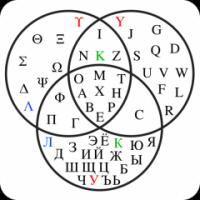Mesaĝoj: 34
Lingvo: English
brivington (Montri la profilon) 2012-oktobro-14 00:12:58
My question comes with the sentence "I have been studying Esperanto for one week." Should this use the past tense or present tense in Esperanto and what preposition is to be used? Thanks for any help!
Brandon
matrix (Montri la profilon) 2012-oktobro-14 05:49:18
- In Esperanto, it might be: “Mi studas Esperanton de post [depost] unu semajno.”
- In French: “J’étudie l’espéranto depuis une semaine.”
You might say as well: “Mi estas studanta Esperanton de post unu semajno.”
However, in this case, it is to be avoided, since in Esperanto, compound tenses are used only when necessary. And, in this case, it does not add any further information.
Scalex (Montri la profilon) 2012-oktobro-14 06:29:57
brivington:It seems to me that one of the biggest annoyances for an English speaker learning another language is figuring out how to properly say something to the feeling of "I have been [verb]ing for [time period]."It depends on whether you're still doing the action you're talking about. In Esperanto, if you say "mi studis", then that would imply that you don't study it any more. You would say:
My question comes with the sentence "I have been studying Esperanto for one week." Should this use the past tense or present tense in Esperanto and what preposition is to be used? Thanks for any help!
Brandon
"Mi studas Esperanton de unu semajno"
in the same way that if I wanted to say "I have lived in London for 3 years" (with the implication that you still live in London, not just that you lived there for three years at some point in your life, but three years up until today), you would say "Mi loĝas en Londono de tri jaroj". If you'd lived in Paris for a year at some point in the past, then you'd say "Mi loĝis en Parizo de unu jaro". "Dum" could be used instead of "de", and means "while" or "during". "de", among other meanings, can show duration of time.
But in any case, my original example assumed a somewhat literal translation of "study" was needed - perhaps you mean more that you've been learning Esperanto since one week ago? You can be learning something without studying it - and perhaps the sentence with "studas" is a little ambiguous,though not in any great way, and there'd be nothing wrong with saying it. It would make a little more sense to me though, to say:
"Mi komencis lerni Esperanton antaŭ unu semajno"
or "Mi eklernis Esperanton antaŭ unu semajno"
Both are more idiomatic translations. You could construct a perfectly valid sentence using ekde or depost if you like, but simplicity is an important aim for good clear esperanto. A common beginner's trap to fall into is over-using "-anta", "-inta", etc, because their English equivalents are so much more common - but it's often unneccesary in Esperanto.
In general,
"antaŭ [time-length]"
= "[time-length] ago"
But there are other uses of antaŭ - it can also mean in front of, relating to the location of something.
Hope this helped
- scalex
tommjames (Montri la profilon) 2012-oktobro-14 09:00:45
brivington:My question comes with the sentence "I have been studying Esperanto for one week." Should this use the past tense or present tense in Esperanto and what preposition is to be used?As has been pointed out, Esperanto doesn't have a present perfect progressive, you would just use the present tense. To translate your phrase I would say "Mi studas Esperanton de semajno".
sudanglo (Montri la profilon) 2012-oktobro-14 11:21:03
So in the specific example you quote the week is upto now, not some previous week in the past.
Usually the continuous aspect is not rendered in Esperanto, though complex forms do allow this.
As has been pointed out, Esperanto follows the French tense usage, using the present for actions continuing up to the present. (Note: 'I have ..' will sometimes require use of the past in Esperanto sometimes the present. Esperanto does not have verbal form for expressing unfinished time, as English does.)
De post really means after a certain event or time, and ekde means beginning from an event or certain time.
Neither are strictly suitable for qualifying 'one week' where that means the week upto now.
Though some might argue that ekde unu semajno or depost unu semajno will serve for ekde antaŭ unu semajno or depost antaŭ unu semajno.
However plain 'de' (or dum) can be used to characterise a state or action with a period.
Because of the differences between Esperanto and English in the meaning conveyed in the verb, it is tempting to recommend a different approach (structurally) to expressing the idea of 'I have been learning Esperanto for one week' than attempting to squeeze the idea into a parallel structure - though if you must, then Mi lernas Esperanton de unu semajno.
I might prefer Mi ĵus komencis lerni Esperanton or Mi estas komencanto de unu semajno. or Mi eklernis antaŭ unu semajno.
whysea (Montri la profilon) 2012-oktobro-15 04:02:39
Mi studadas Esperanton ekde unu semajno.
Although, before I tried to come up with something different, the first thing that popped into my head was along the lines of "Mi ekstudis Esperanton antaŭ unu semajno", which seems to be the general recommendation to get your point across.
sudanglo (Montri la profilon) 2012-oktobro-15 09:58:12
English verbs with -ing just present the act as having extension in contrast with the simple form which present the act as a whole, not viewed in a particular light. Sometimes it may be appropriate to translate these forms with -ad, but mostly not.
Often the duration is signalled with a simple form plus an adjunt, eg. dum longaj horoj. Similarly repetition, eg multfoje.
-Eg can also sometimes be used as an intensifier to emphasize the repetitive or durative aspect. In general however I think some sort of adjunct is the favoured form in Esperanto.
opalo (Montri la profilon) 2012-oktobro-15 10:37:42
marcuscf (Montri la profilon) 2012-oktobro-15 13:43:31
matrix:There is no present perfect progressive tense in Esperanto, nor in French, since you seem to speak this language as well. However, it is possible to express the very idea by the context (and some good prepositions):I don't think de post is correct in this case, because it seems to refer to something in the future (it could be improved by adding “pasinta”: de post la pasinta semajno). De antaŭ, jam de, jam dum and eklernis antaŭ look OK to me.
- In Esperanto, it might be: “Mi studas Esperanton de post [depost] unu semajno.”
You can see the similarities of forms, but also of meanings between the two languages, and the use of the present tense.
- In French: “J’étudie l’espéranto depuis une semaine.”
You might say as well: “Mi estas studanta Esperanton de post unu semajno.”
However, in this case, it is to be avoided, since in Esperanto, compound tenses are used only when necessary. And, in this case, it does not add any further information.
Hundies19 (Montri la profilon) 2012-oktobro-15 14:44:26








